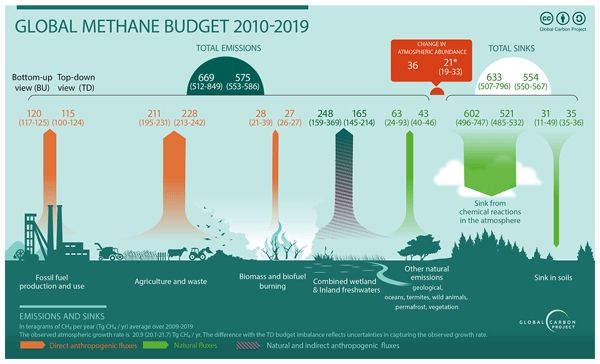
Nicholas D Carter
@nicholasdcarter.bsky.social
📖 Food systems & disinfo researcher
🌎 Director of Environmental Science working on Game Changers 2: https://deadline.com/2023/06/uninterrupted-springhill-produce-sequel-to-he-game-changers-documentary-1235397877/
🌱 Co-creator of iffs.earth
🌎 Director of Environmental Science working on Game Changers 2: https://deadline.com/2023/06/uninterrupted-springhill-produce-sequel-to-he-game-changers-documentary-1235397877/
🌱 Co-creator of iffs.earth
I think those areas simply require some more active rewilding, reintroducing native plants that were displaced, in many cases, with european pasture monocultures. & good to consider native carnivore re- intro too.
Anyway, if this one day ends up being the real world debate, it'd be huge progress.
Anyway, if this one day ends up being the real world debate, it'd be huge progress.
November 10, 2025 at 12:34 AM
I think those areas simply require some more active rewilding, reintroducing native plants that were displaced, in many cases, with european pasture monocultures. & good to consider native carnivore re- intro too.
Anyway, if this one day ends up being the real world debate, it'd be huge progress.
Anyway, if this one day ends up being the real world debate, it'd be huge progress.
Well I don't think it's cart blanche either, but have not seen any evidence that grazing cattle is a better land use than a wild ecosystem or actively rewilded area nearby. And that's what should be compared.
Been going through a ton on this over many years:
drive.google.com/drive/folder...
Been going through a ton on this over many years:
drive.google.com/drive/folder...
Grazing, "Regenerative Grazing", Marginal Land - Google Drive
drive.google.com
November 9, 2025 at 11:48 PM
Well I don't think it's cart blanche either, but have not seen any evidence that grazing cattle is a better land use than a wild ecosystem or actively rewilded area nearby. And that's what should be compared.
Been going through a ton on this over many years:
drive.google.com/drive/folder...
Been going through a ton on this over many years:
drive.google.com/drive/folder...
Sure, and at the same time, cattle grazing is a leading driver of degradation of grasslands. I'm suspicious of the rebranding of it as the solution to the issue.
Have you ever seen a study that shows grazing cattle is better than rewilding grasslands that reintroduces native plants and animals?
Have you ever seen a study that shows grazing cattle is better than rewilding grasslands that reintroduces native plants and animals?
November 9, 2025 at 5:27 PM
Sure, and at the same time, cattle grazing is a leading driver of degradation of grasslands. I'm suspicious of the rebranding of it as the solution to the issue.
Have you ever seen a study that shows grazing cattle is better than rewilding grasslands that reintroduces native plants and animals?
Have you ever seen a study that shows grazing cattle is better than rewilding grasslands that reintroduces native plants and animals?
Lastly, my conclusion is not to paint it all with the same brush, but ask, compared to what? And acknowledge tradeoffs.
Soil, C drawdown, methane, biodiversity, water retention, etc. all improves in rewilding scenarios vs. continuing to graze cattle. And many are misled otherwise by sketchy methods
Soil, C drawdown, methane, biodiversity, water retention, etc. all improves in rewilding scenarios vs. continuing to graze cattle. And many are misled otherwise by sketchy methods
November 9, 2025 at 2:58 PM
Lastly, my conclusion is not to paint it all with the same brush, but ask, compared to what? And acknowledge tradeoffs.
Soil, C drawdown, methane, biodiversity, water retention, etc. all improves in rewilding scenarios vs. continuing to graze cattle. And many are misled otherwise by sketchy methods
Soil, C drawdown, methane, biodiversity, water retention, etc. all improves in rewilding scenarios vs. continuing to graze cattle. And many are misled otherwise by sketchy methods
As I cited to a few different ways in the report, grazing and more broadly animal agriculture is the leading driver of habitat & biodiversity loss. It's not because intensive grazing that this happens, but simply that it's not a native forest or wetland with mix of native plants and animals.
November 9, 2025 at 2:53 PM
As I cited to a few different ways in the report, grazing and more broadly animal agriculture is the leading driver of habitat & biodiversity loss. It's not because intensive grazing that this happens, but simply that it's not a native forest or wetland with mix of native plants and animals.
There are studies that show careful/amp grazing can improve biodiversity relative to previous more intensive land uses. But that's not what I was comparing and, even those are very minor benefits (bit more birds and insects really).
November 9, 2025 at 2:50 PM
There are studies that show careful/amp grazing can improve biodiversity relative to previous more intensive land uses. But that's not what I was comparing and, even those are very minor benefits (bit more birds and insects really).
On the methane claim from that one qualitative paper, the broader evidence disagrees. Much less methane from wild ruminants, not to mention lots of benefits of wild animals travelling large distances vs. domesticated cattle.
bsky.app/profile/nich...
bsky.app/profile/nich...
'Cows just replaced the methane from wild bison'
Not even close.
At their peak, wild ruminants incl. bison emitted ~15 Tg CH₄/yr
Today’s 4+ billion farmed ruminants emit over 100 Tg CH₄/yr
That’s nearly 7x more methane.
essd.copernicus.org/articles/17/...
Not even close.
At their peak, wild ruminants incl. bison emitted ~15 Tg CH₄/yr
Today’s 4+ billion farmed ruminants emit over 100 Tg CH₄/yr
That’s nearly 7x more methane.
essd.copernicus.org/articles/17/...

Global Methane Budget 2000–2020
Abstract. Understanding and quantifying the global methane (CH4) budget is important for assessing realistic pathways to mitigate climate change. CH4 is the second most important human-influenced gree...
essd.copernicus.org
November 9, 2025 at 1:24 PM
On the methane claim from that one qualitative paper, the broader evidence disagrees. Much less methane from wild ruminants, not to mention lots of benefits of wild animals travelling large distances vs. domesticated cattle.
bsky.app/profile/nich...
bsky.app/profile/nich...
@georgeelliot19.bsky.social we have common ground in the need for a major reduction. Note though, even land not suitable for crops can have major biodiversity value. And the logic you shared doesn't acknowledge major increase in food, on less land, with plants.
I cover this in detail in the report.
I cover this in detail in the report.

November 9, 2025 at 1:02 PM
@georgeelliot19.bsky.social we have common ground in the need for a major reduction. Note though, even land not suitable for crops can have major biodiversity value. And the logic you shared doesn't acknowledge major increase in food, on less land, with plants.
I cover this in detail in the report.
I cover this in detail in the report.
As the report notes: disinformation & corporate power - with meat giants lobbying & funding biased science - remain major barriers to this shift.
Full report: www.thelancet.com/commissions-...
Full report: www.thelancet.com/commissions-...

The EAT-Lancet Commission on healthy, sustainable, and just food systems
The 2025 EAT-Lancet Commission on healthy, sustainable, and just food systems presents new evidence-based insights on nutrition and human health, within safe and just planetary boundaries. New to this...
www.thelancet.com
October 3, 2025 at 5:38 PM
As the report notes: disinformation & corporate power - with meat giants lobbying & funding biased science - remain major barriers to this shift.
Full report: www.thelancet.com/commissions-...
Full report: www.thelancet.com/commissions-...
Many solutions flagged:
Shift subsidies from meat/dairy → plant foods.
Taxes, warning labels & ad bans on unhealthy foods (esp. for kids).
Protect & promote traditional plant-based diets.
Side note: see this new broader solutions explorer: drawdown.org/explorer
Shift subsidies from meat/dairy → plant foods.
Taxes, warning labels & ad bans on unhealthy foods (esp. for kids).
Protect & promote traditional plant-based diets.
Side note: see this new broader solutions explorer: drawdown.org/explorer

Drawdown® Explorer
We know what we need to do: stop climate change as quickly as possible. Now, with the Drawdown Explorer, we know how to do it.
drawdown.org
October 3, 2025 at 5:38 PM
Many solutions flagged:
Shift subsidies from meat/dairy → plant foods.
Taxes, warning labels & ad bans on unhealthy foods (esp. for kids).
Protect & promote traditional plant-based diets.
Side note: see this new broader solutions explorer: drawdown.org/explorer
Shift subsidies from meat/dairy → plant foods.
Taxes, warning labels & ad bans on unhealthy foods (esp. for kids).
Protect & promote traditional plant-based diets.
Side note: see this new broader solutions explorer: drawdown.org/explorer
🫘 By 2050: this shift sees –33% ruminant meat, +63% fruits/veg/nuts
💊 Cut antimicrobial use by ~42%
🌱 Labour falls <5% when offset by growth in plant foods. Likely net if considering restoration work.
📈 10-25x payoff: $200–500B cost vs $5T benefits/yr
💊 Cut antimicrobial use by ~42%
🌱 Labour falls <5% when offset by growth in plant foods. Likely net if considering restoration work.
📈 10-25x payoff: $200–500B cost vs $5T benefits/yr
October 3, 2025 at 5:38 PM
🫘 By 2050: this shift sees –33% ruminant meat, +63% fruits/veg/nuts
💊 Cut antimicrobial use by ~42%
🌱 Labour falls <5% when offset by growth in plant foods. Likely net if considering restoration work.
📈 10-25x payoff: $200–500B cost vs $5T benefits/yr
💊 Cut antimicrobial use by ~42%
🌱 Labour falls <5% when offset by growth in plant foods. Likely net if considering restoration work.
📈 10-25x payoff: $200–500B cost vs $5T benefits/yr

